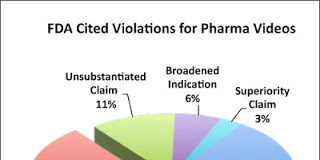 Has the time come for physicians to be forcibly weaned away from ALL pharma “freebies,” including CME and drug samples? Or should the principle caveat doctor be emphasized?
Has the time come for physicians to be forcibly weaned away from ALL pharma “freebies,” including CME and drug samples? Or should the principle caveat doctor be emphasized?
An editorial in today’s issue of Archives of Internal Medicine (Arch Intern Med. 2009;169[9]:829-831), a medical journal published by the American Medical Association, entitled “Time for the Medical Profession to Act,” argues that it is time to prohibit pharma companies from providing free gifts, free meals, free CME, and free samples to physicians.
The author, Philip Greenland, MD, of the Feinberg School of Medicine (Northwesetrn University) points out that the new PhRMA Code on Interactions with Healthcare Professionals (see PMN Reprint #77-01) does not prohibit sponsorship of office-based or hospital-based meals, continuing medical education (CME) events, or “other forms of marketing contacts that are also exceedingly common.”
“Eliminating small gifts without restricting other pharmaceutical company interactions (eg, industry-funded CME symposia and clinical trials) is unlikely to eliminate the substantial influence of drug company marketing on the practice of medicine,” said Dr. Greenland.
Dr. Greenland calls for the prohibition of “all gifts [zero dollar limit], all meals, payment for time and travel at meetings, and payment for participation in online CME from drug and medical device companies to physicians.”
In support, he cites research published in the same issue of the Arch Intern Med: “Effect of Exposure to Small Pharmaceutical Promotional Items on Treatment Preferences,” which concluded that subtle exposure to small pharmaceutical promotional items influences implicit attitudes toward marketed products among medical students. We observed a reversal of this effect in the setting of restrictive policies and more negative school-level attitudes toward marketing” (Arch Intern Med. 2009;169(9):887-893).
“Many … policy initiatives have been proposed to limit contact with and influence from drug marketing personnel, whether in the office, the lunch room, or at CME events sponsored by drug firms,” said Dr. Greenland. “We believe (1) that the evidence is solid that these events are designed for the purpose of influencing and biasing the physician-patient interaction and (2) that these adverse effects are achieved as a consequence of the interactions. It is imperative that the profession police itself, or it is inevitable that government will step in and create a policing structure that will be punitive and require expensive oversight. Why are most of us still waiting? The evidence is clear, and the path is defined. It is time to act.”
I’m not quite sure if Dr. Greenland is calling upon the AMA and other physician organizations to issue such policies or whether he is just talking about medical schools, hospitals, group practices, etc.
I support eliminating drug company interactions with medical students because — as the study quoted above suggests — they are susceptible to influence. I’m not sure, however, if the results of that study can be extended to apply to ALL physicians who are more experienced in dealing with pharmaceutical marketers and sales reps. I guess there are other studies that suggest practicing physicians are just as susceptible. Still, these physicians have lots of sources of drug information. Shame on any physician who depends 100% on the drug industry to keep up to date!
Of course, I would rather see the drug industry itself continue to evolve its marketing practices to live up to its own hype about providing unbiased education and service in support of good patient outcomes. There is also clear evidence in support of and a path defined for that approach.
Caveat Doctor
In closing, I quote Chris MacDonald, author of The Business Ethics Blog: “So go ahead, do business with [drug companies],” says MacDondald in a post entitled “Drug Companies Make Other Companies Do Stupid, Unethical Things,” which I believe applies to physicians as well. “But be careful,” MacDonald continues. “This way danger lies. Take precautions. Ask questions. Doubt what they say. Think twice. And if they suggest doing anything out of the ordinary, be super vigilant. Think carefully about whether you’re being used, or manipulated, or drawn into something that is going to end in scandal. Because you probably are.”
Some possibly related articles and posts:








![6 Digital Tools at the Center of Healthcare Digitalization [INFOGRAPHIC]](http://ec2-54-175-84-28.compute-1.amazonaws.com/pharma-mkting.com/wp-content/uploads/2021/04/6DigitalTools_600px-100x70.jpg)




